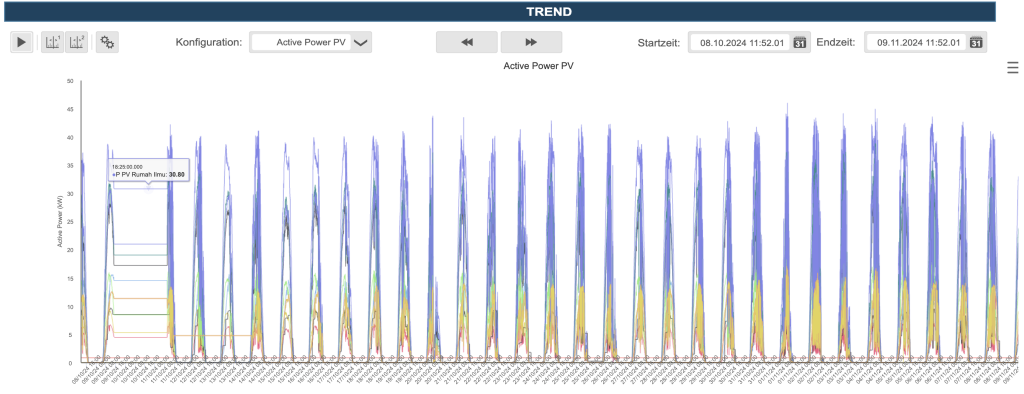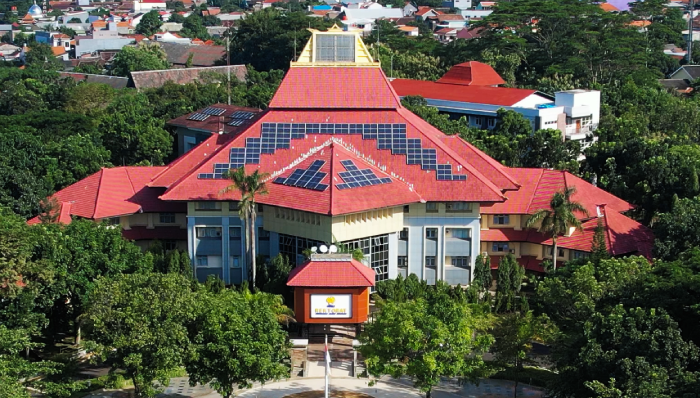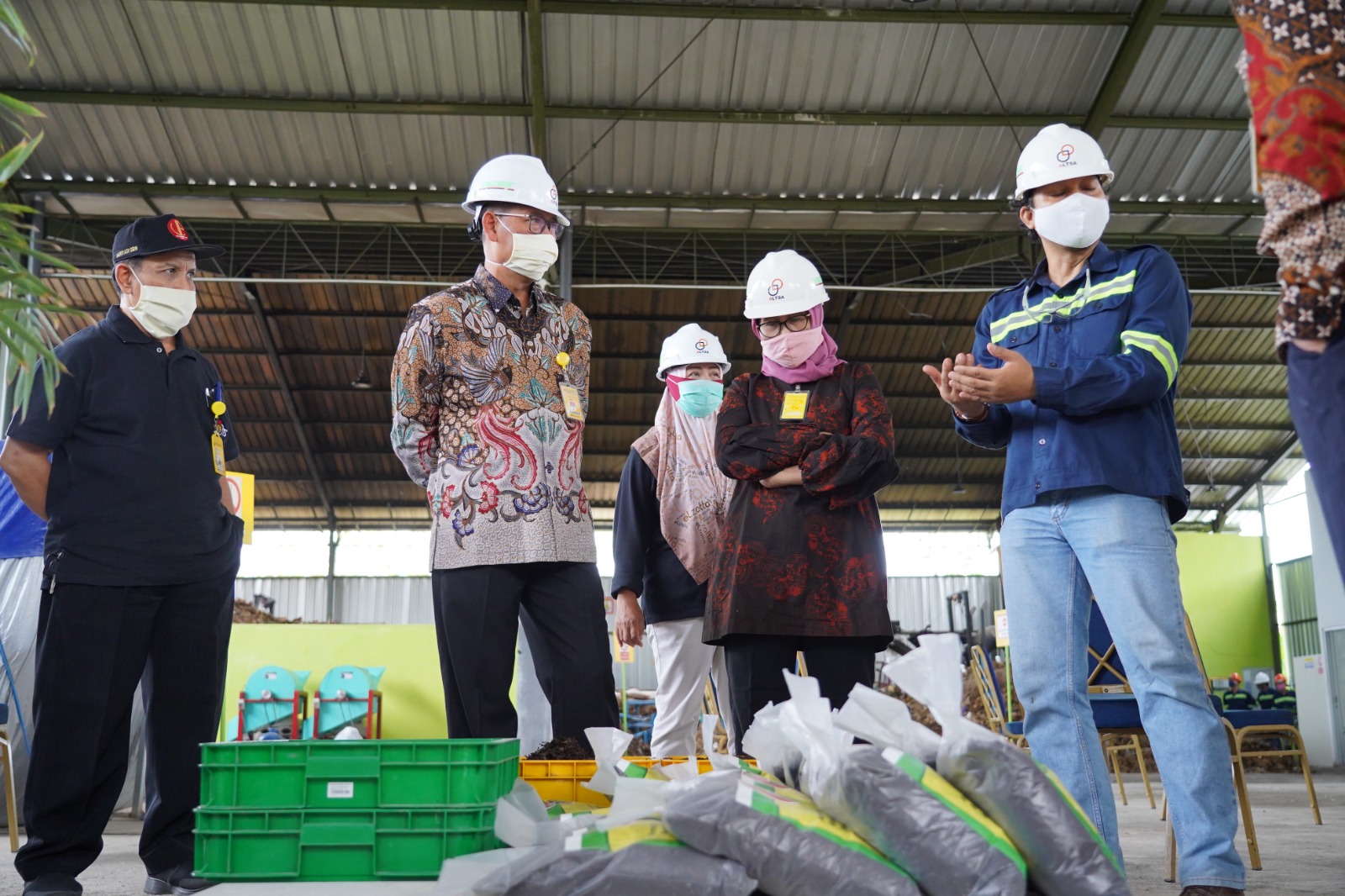Universitas Negeri Semarang (UNNES) continues to increase its use of renewable energy as part of its commitment to environmental conservation. According to the latest data for 2024, renewable energy production at UNNES has reached 401,326 kWh per year, equivalent to 1,444.9251 Giga Joules (GJ). This amount accounts for 5.72% of the university’s annual energy consumption.
The renewable energy generated at UNNES is dominated by solar panels installed on the rooftops of key buildings, including the Rectorate Building, IT Building, Library, Entrepreneurship Building, LP2M, LP3, and all dean’s office buildings. Solar energy also powers street lamps, garden lighting, and electric vehicle charging. Since August 2021, UNNES has operated 468 photovoltaic panels in the dean’s buildings, increasing the total solar panel capacity to 401,325 Wp (Watt peak).
350 Wp Panels are installed at the Rectorate Building, IT Building, Entrepreneurship Building, Waste Management Building, Library, LP2M, LP3, and all dean’s office buildings, with a total of 1,131 units, producing 395,850 Wp; 250 Wp Panels are installed at LP2M, LP3, and the Faculty of Economics Dean’s Building, with a total of 14 units, producing 3,500 Wp; 100 Wp Panels are installed around the lake and for electric vehicles, with a total of 8 units, producing 800 Wp; 47 Wp Panels are used for street and garden lighting, with a total of 47 units, producing 1,175 Wp.
In addition to solar energy, UNNES utilizes several other renewable energy sources, though on a smaller scale. The biogas plant at UNNES Student Dormitory produces 43 kWh per year, while biomass generators produce 0.4 kWh per year using briquettes. Biodiesel energy from the pyrolysis process and waste cooking oil contributes 0.5 kWh per year, and a prototype wind energy generator produces 0.3 kWh per year.

With a total renewable energy production of 401,326 kWh per year, UNNES is nearing its target of significantly increasing the use of environmentally friendly energy. The total energy consumption at UNNES per year is 401,379.20 kWh, equivalent to 1,444.9251 GJ. The ratio of renewable energy production to the university’s total energy usage is 5.72%.
This initiative is part of UNNES’s efforts to realize its green campus goals while supporting the global agenda for clean energy transitions and reducing carbon emissions. With the continued increase in renewable energy production capacity, UNNES is committed to leading sustainable energy management within the academic environment.




